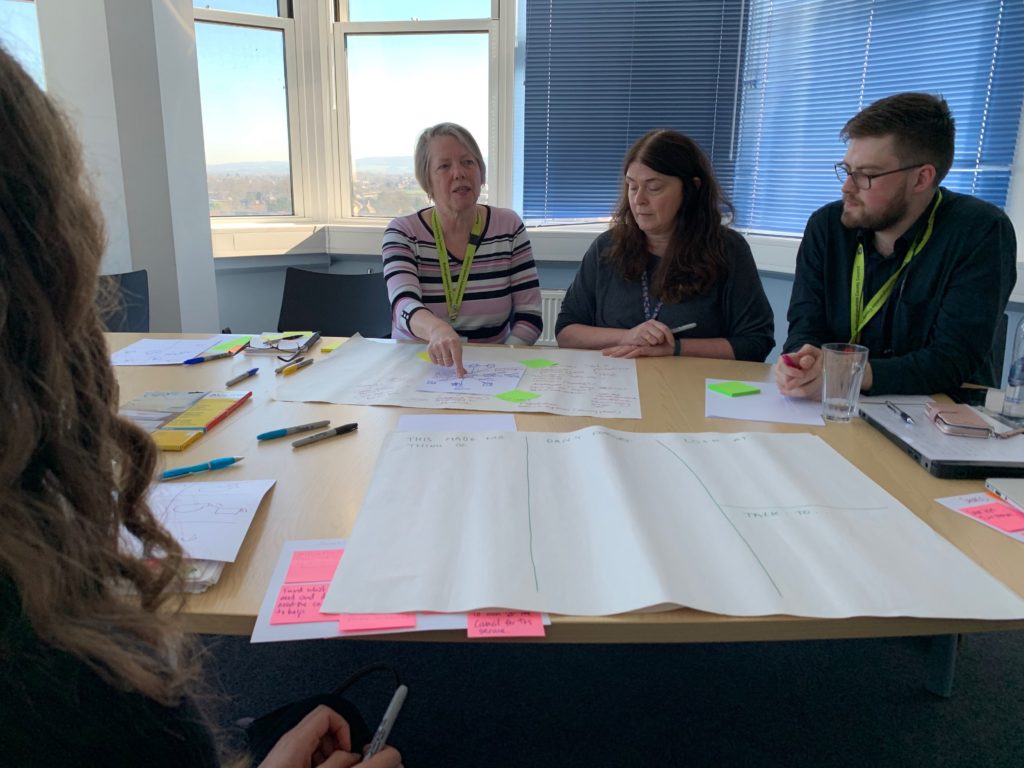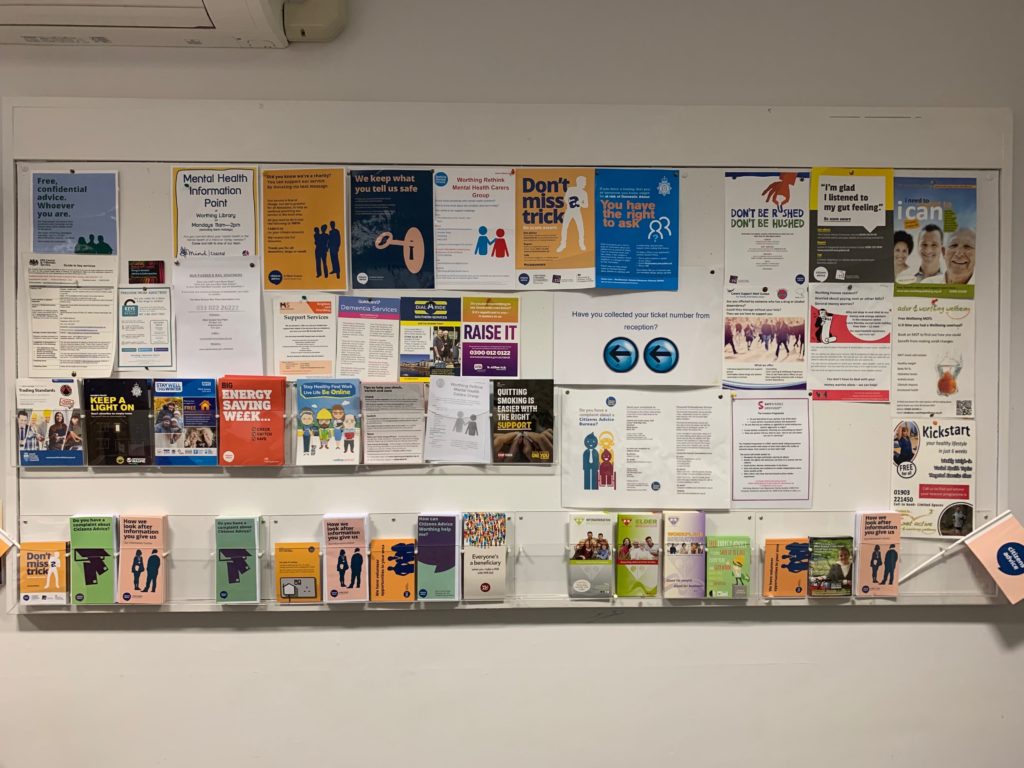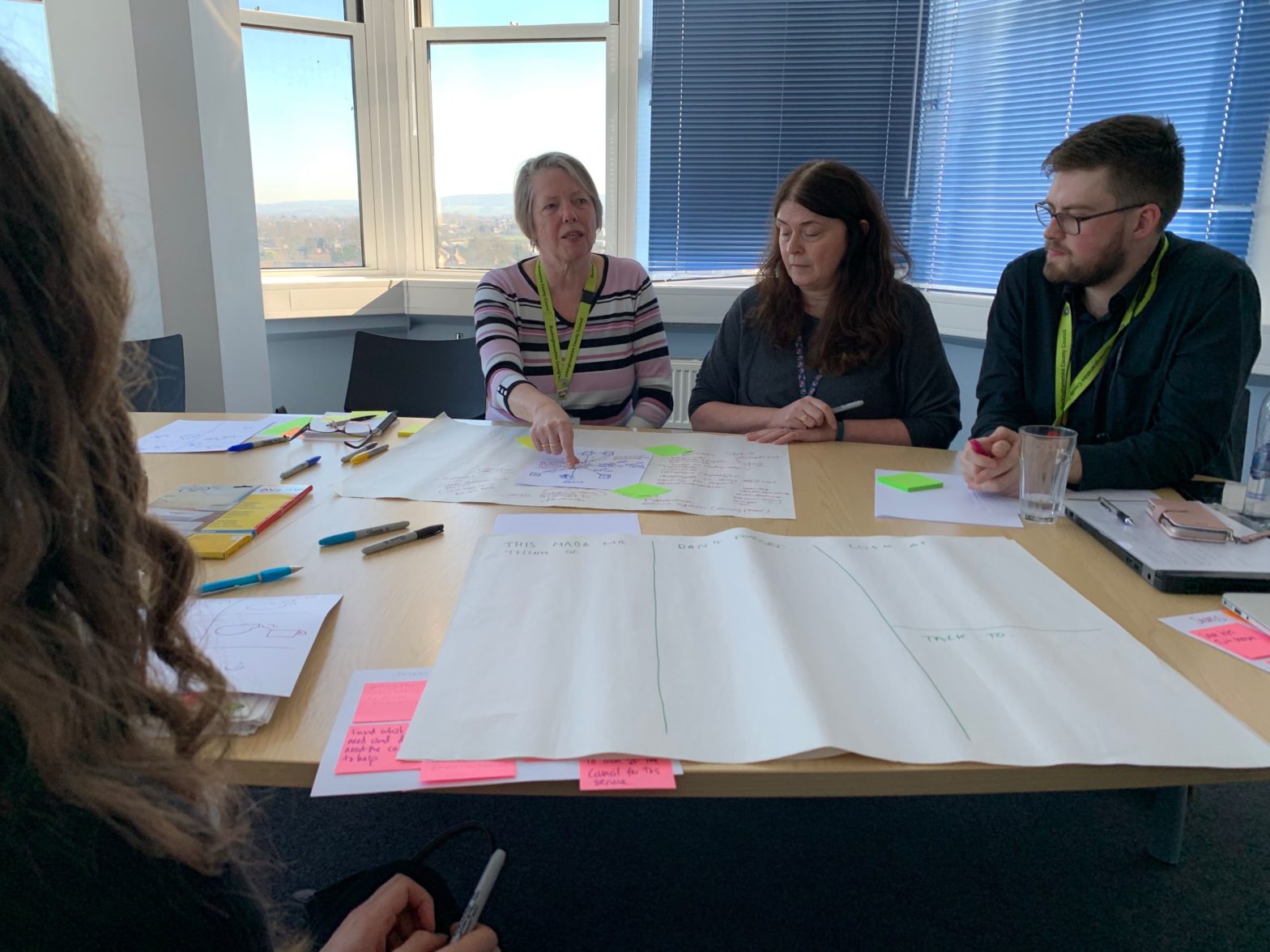Welcome to week notes from the OpenCommunity team. Week notes are a short weekly round up of what we’ve been learning and where we are going next.
Subscribe to get OpenCommunity week notes delivered to your inbox.
TL;DR *
Service directories don’t always align with the behaviours and needs of the people they are designed for. Under-investing in service directories may result in much bigger costs further down the line.
* Too long; Didn’t Read – a short summary for busy people.
About the project
OpenCommunity is on a mission to discover the need for a community-services data standard. What might become possible if all community directories in the UK were designed in a way that allowed them to talk to each other?
Read the original proposal from the OpenCommunity team.
Question of the week
If we can’t even un-silo our office milk, how can we un-silo service directories?
What we’ve done
Visited Worthing Council
- We met some people doing incredible work around homelessness services, making sure that people in tough situations are treated like humans.
- Saw some inspiring examples of social prescribing in action, and hearing how it’s making work lighter for GPs.
- Met people doing the hard work to make service information more accessible to those who need it.
- Witnessed some impressive examples of office milk silos. But we all have our own budgets, right?! 😬
Visited Buckinghamshire County Council in Aylesbury
- Saw some mind-boggling spreadsheets
- Had a romantic post-it fuelled Valentines dinner planning a focus group – to explore what the ultimate shared directory would look like, and what challenges would need to be overcome to get there.


- Bucks basically solved the problem of how to create and implement a shared directory. So that’s our work over then.
- Ran our first show-and-tell from under a sea of post-it notes.

- Danced in front of a singing Bowie statue.
Back in the studio
- Steven started to explore governance models for an OpenCommunity standard.
- Rory began to sketch out a design for the OpenCommunity standard.
What we’ve learned
There are three tiers of referral relationships
We discovered that those who make referrals regularly rarely use service directories. There seemed to be three tiers to people’s referral habits:

1st tier: Services who referrers contact daily. These may be on a printed list in the office, or in their phone address book.
2nd tier: Experienced referrers probably know these people too. They tend to prioritise services with whom they have a relationship. Some might use a personal directory at this level, for example in a spreadsheet or email folder. Less experienced referrers may use a directory or Google for this tier, or may ask colleagues for suggestions.
3rd tier: These are services that referrers very rarely refer to, or have to look up especially. Most used Google to find these services.
Better than Google?
Most referrers we spoke to used Google rather than service directories to find community services. Which begs the question – who are directories really for anyway?! If a directory is not easier or more reliable to use than Google, people probably won’t use it. Google is good – but requires a lot of trawling.
Managing service directory data takes a lot of work
A LOT of work goes into maintaining service records, and verifying their information. Like, a LOT. This is a burden, both for data custodians and the service providers forced to use cumbersome systems to update their information.
“Sometimes the Excel sheets I get back from service providers are so incorrectly filled out that I have to go back and forwards 6 – 8 times to correct it.”
Some of this work really is best done by people, for example verifying the quality or safety of a service. Some work is much better done by computers. Siloed and low budgets block the development of better directories. This results in hard-to-use products that require considerable maintenance and support costs.
We’ve been here before…
Shared directories have existed before. The ISPP (Information Service for Parents and Practitioners), also known as the Parent Know How directory provided a national view of services available to families. It was retired when funding was pulled and government departments were reorganised. A community services standard must consider future resilience to these sorts of changes in environment.
Public vs professional service directories
A recurring theme in our research was conflicting needs between internal and public directories. Most current directory products are designed for public use. There is very little in place to meet the needs of professionals.
Lack of awareness is a barrier to adoption
Awareness of directories was an issue. Those who needed them most often didn’t know they existed. This is especially true for professional-facing directories. Service directories can’t just rely on word of mouth to drive adoption.
Eligibility criteria
There seems to be a fear amongst local authorities and service providers around making eligibility criteria and service capacity public. Perhaps a feeling that supply can’t meet the full demand that exists. This is especially true for high need, referral-only services. This lack of information can often lead to them having to work harder to access services.
Increasing demand and decreasing supply
Decreasing funding for services and increasing demand were key themes in our conversations with people.
“There used to be a common theme amongst our attendees of drug and alcohol addiction and mental health needs. Increasingly though, people are just here because of poverty – for example, they’ve broken up with their partner and can no longer support their family and pay rent themselves.”
Turning Tides
Leaflets, flyers and posters
Print is an important touchpoint, especially for service users for whom digital is a barrier – for example people accessing adult social care or homelessness services.

Drop-ins, timetables and events
Many community service providers operate a rolling timetable of activities. For example “Every second Monday there is a benefits drop in session at the library”. These are important referral and access routes for many service users. Some directories aren’t able to record these types of activities.
Community services are used by everyone
Everyone agreed that community services exist to improve our wellbeing. They support us from before we’re born to when we die. We will all access community services at some point in our life, usually during moments when we’re at our most vulnerable. Being treated as human is therefore vital.
Sourcing data with minimal effort
In defining a standard, the sources of community service data are important to consider. One of the main goals of the OpenCommunity standard is to reduce the effort involved in maintaining high quality data. Some community services are regulated at a national level, for example childcare providers may be registered with Ofsted, and adult social care providers are registered and accredited by the Care Quality Commission. As national aggregators, could they provide a source of trusted baseline data?
Where we’re going next
Synthesising research
This week, we are analysing everything we saw and heard in Worthing and Buckinghamshire. We will be pulling out themes, user needs and service needs. We will be working to understand how the OpenCommunity standard could help and what other factors are important to consider.
Research with Service Commissioners in Devon
Next week we are heading to Devon County Council in Exeter to speak with service commissioners across health and social care to better understand their needs.
